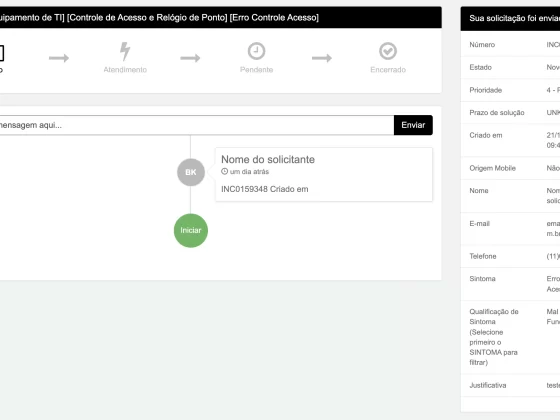As an expert in ServiceNow’s IT Service Management (ITSM) module, I understand the critical role that Incident Management plays in maintaining the smooth operation of IT services. In this blog post, we will explore how ServiceNow’s Incident Management functionality empowers organizations to efficiently manage and track IT incidents, prioritize tasks, and ensure timely resolutions.
Incidents are inevitable in any IT environment, and their efficient resolution is crucial to minimize disruptions and maintain business continuity. ServiceNow’s Incident Management module provides a comprehensive set of features to streamline the incident handling process and enhance operational efficiency.
Centralized Incident Tracking:
With ServiceNow, IT teams can capture and track incidents from a centralized platform. This ensures that incidents are logged, recorded, and assigned to the appropriate individuals or teams for resolution. By having a centralized repository, stakeholders can easily monitor the status of incidents, track progress, and ensure timely resolution.
Prioritization and Escalation:
ServiceNow enables IT teams to prioritize incidents based on their impact and urgency. By assigning appropriate priorities, teams can focus their efforts on critical incidents that have a significant impact on business operations. ServiceNow also provides escalation mechanisms, ensuring that incidents are escalated to the right individuals or teams when necessary, to meet service level agreements (SLAs) and minimize any potential delays.
Efficient Collaboration:
ServiceNow’s Incident Management fosters collaboration among IT teams, enabling seamless communication and information sharing. By having a centralized platform, teams can collaborate in real-time, share updates, and exchange insights on incidents. This collaborative approach accelerates incident resolution, as teams can leverage collective knowledge and expertise to quickly identify the root cause and implement effective solutions.
Automation and Self-Service:
ServiceNow allows organizations to automate routine incident management tasks, reducing manual efforts and accelerating response times. Through self-service capabilities, users can access a knowledge base or self-help resources to troubleshoot common incidents independently. This empowers users to resolve incidents promptly and alleviates the burden on IT teams, allowing them to focus on more complex issues and strategic initiatives.
SLA Compliance and Reporting:
ServiceNow’s Incident Management module enables organizations to define and enforce SLAs for incident resolution. By setting SLA targets and automating SLA tracking, organizations can ensure that incidents are resolved within agreed-upon timeframes. Additionally, ServiceNow offers robust reporting and analytics capabilities, providing insights into incident trends, performance metrics, and areas for improvement.
By leveraging ServiceNow’s Incident Management functionality, organizations can effectively manage and track IT incidents, ensuring timely resolutions and minimizing disruptions. The streamlined incident handling process, prioritization capabilities, efficient collaboration, automation, and SLA compliance empower IT teams to deliver exceptional service and maintain a high level of customer satisfaction.
ServiceNow’s Incident Management module is a powerful tool that enhances operational efficiency, reduces downtime, and improves IT service delivery. Embrace the capabilities of ServiceNow’s ITSM module, and experience the transformative impact it can have on your incident management processes.




You must belogged in to post a comment.